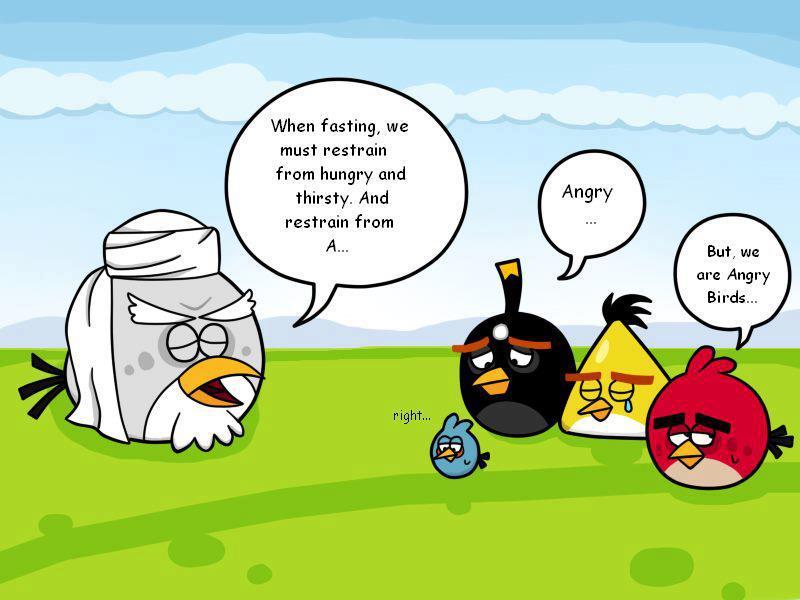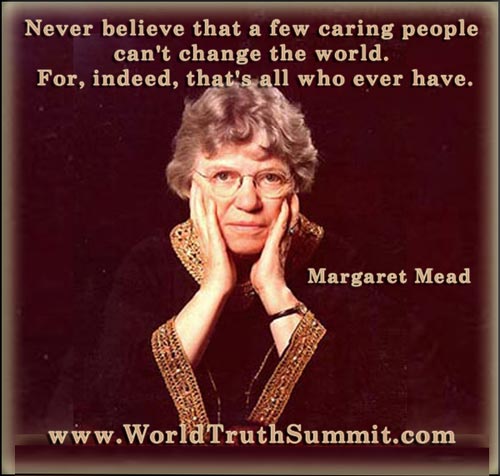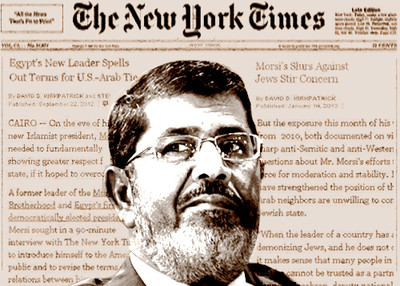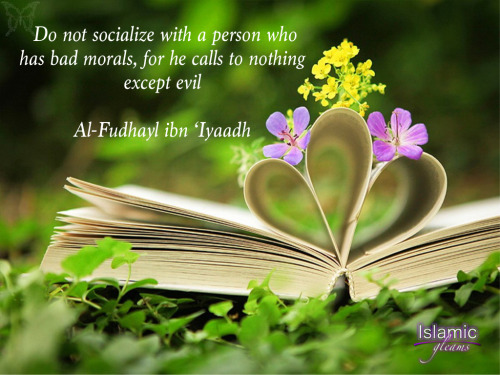Yusuf Islam Quotes Biography
Source:- Google.com.pkBorn Steven Demetre Georgiou, the son of a Greek Cypriot restaurant owner and Swedish mother, he grew up in a flat above the family shop in London’s theatre district, situated at the northernmost junction of Shaftesbury Avenue and New Oxford Street, near the heart of the West End. The back streets and alleyways of this cosmopolitan district became Stevens concrete playground and a place of learning. Full of bright lights, famous theatres and cinemas, strip clubs and musical instrument stores, this busy part of the city throbbed with excitement and entertainment. At night, musicals would echo from Drury Lane just across the road and drift up through his window; he would oftentimes be found hanging around in coffee bars, where the latest hit singles were continuously playing
Early on, Steven developed a natural love for art and music. At 15, he managed to get his father to buy him a guitar for £8. He began penning his own songs almost immediately, and it soon became clear to his family and friends that he had a unique talent to paint as well as sing. That talent separated him from the rest. He didn’t have many friends, so he became something of a loner. On most evenings, he would climb high up to the rooftops and gaze at the noisy city below; allowing for moments of peaceful and elevated detachment under the capitals night sky. As a child, he was naturally inquisitive (I used to look up into the heavens and wonder: where does the night end?).
While studying at Hammersmith Art College, he was auditioned by Mike Hurst, a record producer formerly of the pop-folk trio the Springfields. Hurst was about to emigrate to America when he decided to record this handsome young discovery. The results, I Love My Dog and Portobello Road, impressed Decca Records so much that the young artist” now to be known as Cat Stevens”, was selected to launch the new Deram label, which also signed new British talent such as David Bowie and the Moody Blues.
Power-played by pirate radio stations, in November 1966 I Love My Dog reached No. 28 on the U.K. charts. His next hit, Matthew and Son, went to No. 2, stopping behind the Monkees I’m a Believer. Stevens earnings jumped from 2 pounds a week to 300 pounds per night. At nineteen, he was getting a reputation for Top Ten hits. His song I’m Gonna Get Me a Gun reached number six. He was also a popular songwriter: the Tremeloes covered Here Comes My Baby which went to No. 4, and P.P. Arnold, a former Ikette from the Ike and Tina Turner Revue, cut a version of The First Cut Is The Deepest which reached No. 18. Many years later Rod Stewart made the song a worldwide smash hit.
Clean cut, in sharp, black velvet Carnaby Street suits, Stevens was a prime sixties recording artist at a time when the music business was in its infancy and singers werent heavily targeted to any one audience. He regularly appeared on what would have been highly unusual tours by todays standards” alongside the Walker Brothers, Engelbert Humperdinck and the Jimi Hendrix Experience!
As Stevens debut album Matthew and Son climbed to No. 7 in 1967, he was now keeping to a rigorous promotion schedule of live performances, television appearances and record store signings and was regularly locked away in the studio. With a producer and musical director, it was not unusual to record three tracks in one session.
While his late-sixties material had a distinctive orchestrated sound” easy to remember, odd lyrics, quirky and infectious ”Stevens preferred sitting cross-legged and relaxed on the floor, and plucking his guitar like the folk-blues artists he admired and listened to at his favourite Soho hang-out, Les Cousins, a dank basement club where Paul Simon and Al Stewart occasionally played. These were the early days of a new tradition that used folk idioms in melodic acoustic ballads, the roots of the seventies singer-songwriter movement, which would produce performers like James Taylor and Joni Mitchell.
Despite the growing underground popularity of acoustic music, all of Stevens attempts to change his style were met with resistance by his record company. The young singer was caught in a sound-trap. Cat Stevens soon found that he didn’t like personal appearances either. This frustration, added to the whirlwind rounds of double gigs, smoking thirty cigarettes a day, drinking and late nights, finally took its toll. In the winter of 1968 he caught a cold that grew progressively worse. Eventually he was hospitalised with tuberculosis and a collapsed lung.
The nearly yearlong convalescence probably saved his life. This was his chance for peace and meditation. Stevens remembered, To go from the show business environment and find you are in hospital, getting injections day in and day out, and people around you are dying, it certainly changes your perspective. I got down to thinking about myself. It seemed almost as if I had my eyes shut. When he did emerge, he was a chastened and bearded young man.
The most profound transformation, however, was musical. He began to write a string of deeply inspiring songs. Many of the unreleased demos he recorded away from the spotlight during this experimental period like I’ve Got A Thing About Seeing My Grandson Grow Old reflected his new, unique folk-pop style. Stevens lyrics became more subtle and intuitive; his inner strength was now beginning to show and he was also now beginning to explore Eastern religions. In a 1973 interview with Paul Gambaccini in Rolling Stone, he analysed his early singles. In the old days, I was more concerned with melody. Now it’s what I have to say. I do realise I am using more words. And sometimes I stop the melody, I stop singing… and make a statement.
A more honest style, imbued with emotion, was nurtured by his new producer Paul Samwell-Smith, formerly of the Yardbirds. With guitarist Alun Davies, bassist John Ryan and drummer Harvey Burns and, featuring on one song, a nervous Peter Gabriel on flute, intimate acoustic playing characterised Stevens first rock album, Mona Bone Jakon (April, 1970). Stevens preferred laying down many of the songs live, either with a guitar or at the piano. The madrigal-inspired Lady D’Arbanville zoomed to No. 8 and now America was listening more attentively.
From 1970 to 1974 he recorded and released the albums that would establish him as a leading singer-songwriter of his generation. His next major album, Tea for the Tillerman, from winter 1970, went gold in the U.S. with such songs as Wild World, Hard Headed Woman, Where Do the Children Play and Father & Son, which re-orbited as a massive hit in the ’90s for the young Irish band, Boyzone. But no doubt it was Teaser and the Firecat (September, 1971) that made him a megastar. The album became a staple in teenage girls record collections on both sides of the Atlantic, earning him the reputation as the voice of the bed-sitters in the U.K. and college dorms in the U.S. Climbing to No. 22 on the U.K. singles chart, Moonshadow made Billboard Magazine U.S. Top Ten, along with Peace Train and Morning Has Broken, a traditional hymn Stevens rediscovered in the religious section of a London bookstore.
With curly black hair and a trim beard, the handsome Greek-looking young composer/singer replaced the sharp sixties suits with jeans and T-shirts. When questioned, he had difficulty explaining his musical appeal, I’m just like a mirror, and you see yourself in me. Stevens had at this time also started to investigate Zen Buddhism, vegetarianism, numerology and astrology. There were still many mysteries to life and these he reflected in his increasingly personal lyrics.
Stevens music for the classic film Harold and Maude (1971) became source nourishment for the West Coast generation. It contained several tracks from his first three albums. The songs Don’t Be Shy and If You Want to Sing Out, Sing Out from that highly successful cult film were never officially released until 1984’s compilation, Footsteps In The Dark.
His next album, Catch Bull At Four (September, 1972) was named after Kakuan’s Ten Bulls, a twelfth century Zen Buddhist treatise about the steps to self-realisation. Sitting and Can’t Keep It In are both from the album, the latter reaching No. 13. By now, Stevens had become a skilful musician. Along with singing, writing songs, composing and arranging music, he played a variety of instruments on his records: from acoustic, electric and Spanish guitar to electric mandolin, piano, organ, synthesizer, penny whistle, drums and bass.
During the seventies it was de rigueur to sit at the feet of a guru, but Stevens was too elusive to pin down to any dogma or cult and continued to earnestly seek a spiritual home. The combination of success and notoriety from selling 23 million records worldwide pushed him deeper into self-seclusion and made him more devoted to his search. His first encounter with Islam was in a market in Marrakech, Morocco, where he’d gone in the early seventies to gain inspiration and write. I heard singing, he recalls, and will never forget: I asked, What kind of music is that? and they told me, That’s music for God. I’d never heard anything like that before in my life. I’ve heard of music for praise, for applause, for money, but this was music seeking no reward except from God. What a wonderful statement.
The next album, Foreigner, released during summer 1973, was less a musical statement than how he perceived himself. After living the nomadic, sometimes unstable life of a rock star, from black limousines to stadium gigs and unfamiliar hotels night after night, he found himself suffering from the post-modern condition of social alienation. In one interview he said, “The public expected me to do things expected of me being who I was. I tried to change that at certain points in my career, and I think perhaps when it comes to Foreigner, you might find that was a complete break.â€
Subsequently, he returned to a more accustomed style. His next hit singles included Oh Very Young, from 1974’s Buddha And The Chocolate Box, and a cover of one of his favourite Sam Cooke songs, Another Saturday Night, a non-LP single from the summer of 1974 that reached No. 19.
In 1975, Stevens moved to Rio de Janeiro for tax reasons, travelling home to see his family for short periods. He donated liberally to charities and organisations, including UNICEF. But life had become fragmented. By the mid-seventies he had recorded an album in twelve different countries. He was a regular draw at large U.S. festival and stadium gigs; Stevens popularity was unquestioned. The Los Angeles Times once wrote, He is an exceptional singer and artist, able to combine strength, and fragility and sometimes mystery in his highly personal compositions.
Stevens gradual antipathy for show business seemed to coincide with his changing moods and philosophy; his spiritual explorations at that time still had not come to any conclusion. After experiencing the good life, he was still hungry for something better. He commented, One of the most dominant news of man is material. The motto of this concept is âEat, drink and be merry.The problem was that I had eaten, I had drunk I wasn’t merry.
His next albums, beginning with the November 1975 release, Numbers, featuring the melodic Majik of Majiks, were not as popular as his earlier material. By now, Stevens inimitable songwriting and recording technique were more diverse, influenced by his globe wandering life style. Cat Stevens last Top 10 charting album, 1977’s Izitso (produced by Stevens and David Kershenbaum), included the hit (Remember the Days of the) Old School Yard, which harked back to his early childhood in the West End.
Another change came in the form of a near-death experience. Stevens had gone swimming at the house of Jerry Moss, his American record boss, at Malibu Beach, and after a half-hour could barely stay afloat in the perilous currents of the Pacific Ocean. He attempted to swim to land, but the sea was too strong. He realised he was going to drown and he called out to God. Miraculously the tide swiftly turned, a sudden wave lifted him and he swam easily back to shore.
His inner faith revealed itself further when his elder brother David gave him a copy of the Qur’an. It provided the key to the answers he had been looking for: It was the timeless nature of the message, he said, the words all seemed strangely familiar yet so unlike anything I had ever read before. Privately, Stevens started applying Islam’s spiritual values to his own life: he began praying directly to God and gradually cut down drinking, clubs and parties. He retreated from the music business and finally embraced Islam in 1977, changing his name to Yusuf Islam. He was still contracted to deliver one more album. But his attitude towards the music business now resounded more clearly in his lyrics: Just Another Night, from 1978, appeared on his very last rock album, appropriately entitled Back To Earth, for which the singer again teamed up with Paul Samwell-Smith.
While some fans were baffled and dismayed by his decision, his close family respected him for his spiritual conviction and were relieved. According to Yusuf, The moment I became a Muslim, I found peace. With the advent of his marriage and the birth of his first child, Hasanah, he turned his attention to education. Yusuf opened and funded the Islamia Primary School in London, which, fifteen years later, made history by becoming the first government funded Muslim school in England.
As a multimillionaire he could have spent the rest of his life in luxurious obscurity, except that his concern for humanitarian and charitable causes took him back into the public spotlight. During the African famine in 1984, he helped establish Muslim Aid, an international relief organisation. Today, Yusuf still donates vast amounts of his royalty income to charity. He has for almost three decades concerned himself with education and fundraising for the plight of those much less fortunate. His U.K. and United Nations registered charity, Small Kindness, provides humanitarian relief as well as social and educational programs to countless orphans and needy families in the Balkans, Iraq, Indonesia and other regions.
Ending his successful music career, even with all his travels and charitable projects, and being appointed to various community organisations, did not, however, mean a total end to creative writing. One of the first songs he wrote as Yusuf Islam, after the birth of his daughter in 1981, was entitled “A is for Allah”. His intention was to shift attention from apples to the Creator of apples. I earnestly believe there is a need for strengthening the moral base of education,†Yusuf stated, the horrors which are happening more and more in schools: murders, teenage pregnancies, drugs, the lack of respect, violence, bullying, racism. Surely kids deserve a better start and chance in life?
Following the torrent of controversy surrounding the publication of The Satanic Verses, Yusuf was dismayed at the misunderstanding around the figure of the Prophet Muhammad whose words were often misunderstood and exaggerated by the media. He saw this as a sign of how extremists on both sides attempted to use Islam as a combatant in a global struggle. It may come as news to some, but the word Islam itself derives from the word peace, he pointed out. That is the heart and soul of God’s religion and is what I’ve always followed.
So in 1995, in an unexpected move after a silence of eighteen years, Yusuf returned to the recording studio to make the spoken word album, The Life of the Last Prophet, on his own label, Mountain of Light. It included some pleasing songs which brought the singing and poetry of the Islamic world and culture to many ears for the first time. The former star had kept his lilting voice and joyful sense of rhythm, which brought smiles of recognition from old Cat Stevens fans.
Spurred by the encouragement from music lovers for more recordings following the Bosnian genocide, Yusuf wrote and sang some new songs accompanied only by drums, and began recording a charity album, I Have No Cannons That Roar. One of the new compositions was a song dedicated to the children of Sarajevo and Dunblane entitled The Little Ones.
Yusuf realised there was an important role he could play in using his talents to educate through his songs, and a fresh wave of inspiration carried him into the new millennium. His first work in 2000 was an encyclopaedic project, A is for Allah, based on the original lullaby he wrote for his daughter. The production included a spoken word explanation of Islam through the letters of the alphabet, several new songs, accompanied by a seventy page, beautifully designed colour book. He has released eight albums to date under the Mountain of Light label, mostly for children, the latest being I Look I See 2.
In 2001, Yusuf sought new horizons and opened an office and established a home in Dubai, the sparkling new enterprise of futuristic thinking Muslim rulers in the Gulf region. He was impressed with the balance of this Arab state, leading the way towards a tolerant and modern society while maintaining an unshakable love of Islamic culture.
At that time, his son, Muhammad, presented him with a life altering dilemma. He bashfully showed his father a proud new possession: a guitar! Yusuf was forced to reflect again on the issue of music and instruments. After years of inquiry and soul searching, Yusuf’s doubts about the use of music within Islamic history and culture had lessened. He reached the conclusion that the evidence for banning instruments failed to meet Islamic Law’s requirements for unquestioning acceptance. He wrote an article that explained his understanding of how the evidence allowed for different views on this issue. The Qur’an does not ever actually mention the word music or instruments.
It was clear to him that the objective of branding music as makruh (disliked) or haram (forbidden) was based on juristic interpretation, probably in the desire to avoid frivolous and immoral songs, which were very much a reflection of what has universally come to be known as sex, drugs and rock’n‘roll. And although Yusuf had been famously associated with various aspects of that capacious culture during his flamboyant career, yet most of his music and lyrics explored the paths to peace and universal understanding a far cry from that wild world.
As a result, Yusuf lent full support to his son’s ambition to make an album of his own songs, and arranged for him to record in South Africa. Gradually, Yusuf became relaxed about the block he had placed on his creative ideas and began to expand his writing with the trusty help of his son’s Spanish guitar. When I picked up the guitar again it was like a floodgate, Yusuf said. Ideas and melodies floated in without effort. The novelty of the whole process, searching for forgotten chords, inspired me; it was like the simple joy of being back as an amateur, with nothing much to lose.
Yusuf performed at a number of major charity concert events including Nelson Mandela’s 46664 AIDS benefit concert in 2003 in Cape Town, South Africa, and the United Nations Voices for Darfur†concert at the Royal Albert Hall in 2004. Also in 2003, he was awarded the World Social Award for his humanitarian relief work around the world. Previous recipients of the award included the late Pope John Paul II and Steven Spielberg.
But on a day in September 2004 his world seemed to turn upside down. While on a flight to Nashville, Yusuf was refused entry into the United States. No official reason was given for the action. The drama I found myself in was like some horrible Hollywood B-movie. And I was the star. But nobody ever told me the plot, let alone the lines. The deportation led British Foreign Secretary Jack Straw to complain personally to Secretary of State Colin Powel at the United Nations. Two years later, Yusuf was admitted without incident for several radio performances and interviews and has visited the country several times since then.
In November 2004 he was honoured with the Man for Peace award by a committee of Nobel peace laureates. The following year, in January 2005, he flew with his wife to take part in a fundraising concert in Jakarta to aid the victims of the tsunami. The song he composed for that occasion, Indian Ocean, was the first official song Yusuf wrote and recorded with instruments after a break of twenty six years! In May of the same year, at the Adopt-A-Minefield gala, his contribution included a duet with Paul McCartney.
Also in 2005, he was asked by the U.K. Home Office to convene a working group on education to advise the government on tackling extremism and disaffection among Muslim youth. He advised the government to review their foreign policy when dealing with Muslim countries and to adopt a more inclusive position regarding Islam’s historical contribution to Western civilization through the scientific, educational and cultural influence of the early period of Islam in Spain and the Ottoman Empire. His role as an ambassador of the Muslim community in Britain earned him an honorary doctorate from the University of Gloucestershire for services to education and humanitarian relief.
After what felt like a lifetime away, Yusuf got together with Rick Nowels and returned to the studio to produce his first album in almost thirty years. The critically acclaimed, An Other Cup, released in late 2006, coincidentally arrived on the 40th anniversary of his first Cat Stevens record, I Love My Dog, in November 1966. The millions who bought the records he made as Cat Stevens back in the ’60s and ’70s had hoped that one day the world would again hear his mellow voice and intimate, thought-provoking songs. The long wait was over and their wishes had come true.
With the aim of inspiring bridge-building and understanding across cultures and faiths, the album touched the hearts of many old as well as new fans and attained Gold and Platinum status across Europe. As Yusuf puts it, Much has changed, but today I am in a unique position as a looking glass through which Muslims can see the West and the West can see Islam. It is important for me to be able to help bridge the cultural gaps others are sometimes frightened to cross.â€
In May 2007, Yusuf was awarded the Ivor Novello award for Outstanding Song Collection.The same year the University of Exeter bestowed on him a second honorary doctorate in recognition of his humanitarian work and for improving understanding between Islamic and Western cultures.
In July, Yusuf performed as a special guest at Live Earth, Hamburg, closing the show with a five song set. Live Earth initiated a three year campaign to combat climate change. The worldwide concerts brought together more than 150 musical acts. He supported with conviction the One Planet theme he had championed for many years with songs like Where Do The Children Play and Ruins.
The power of Yusuf’s musical legacy and ongoing creative writing will hopefully be raised again in the form of a new musical scheduled to open in Europe in 2010. He is working on a stage production entitled Moonshadow, based on the story of a young man’s (his!) spiritual journey. It will include many of his best loved songs from his Cat Stevens repertoire, as well as new, original material especially written for the show.
Ultimately, the reason for Yusuf’s return to music and performing is simple, he explains. The language of song is simply the best way to communicate the powerful winds of change which brought me to where I am today, and the love for peace still passing through my heart. I feel gifted to have that ability still within me. I never wanted to get involved in politics because that essentially separates people; whereas music has the power to unify, and is so much easier for me than to give a lecture.
At this he smiles knowingly. “You can argue with a philosopher, but you can’t argue with a good song. And I think I’ve got a few good songs.”
Yusuf Islam Quotes Islam Quotes About Life Love Women Forgiveness Patience life and death peach marriage Mother Photos

Yusuf Islam Quotes Islam Quotes About Life Love Women Forgiveness Patience life and death peach marriage Mother Photos

Yusuf Islam Quotes Islam Quotes About Life Love Women Forgiveness Patience life and death peach marriage Mother Photos

Yusuf Islam Quotes Islam Quotes About Life Love Women Forgiveness Patience life and death peach marriage Mother Photos

Yusuf Islam Quotes Islam Quotes About Life Love Women Forgiveness Patience life and death peach marriage Mother Photos

Yusuf Islam Quotes Islam Quotes About Life Love Women Forgiveness Patience life and death peach marriage Mother Photos

Yusuf Islam Quotes Islam Quotes About Life Love Women Forgiveness Patience life and death peach marriage Mother Photos

Yusuf Islam Quotes Islam Quotes About Life Love Women Forgiveness Patience life and death peach marriage Mother Photos
-415916.jpg)
Yusuf Islam Quotes Islam Quotes About Life Love Women Forgiveness Patience life and death peach marriage Mother Photos
+-+5%22+CD+SINGLE-397676.jpg)
Yusuf Islam Quotes Islam Quotes About Life Love Women Forgiveness Patience life and death peach marriage Mother Photos







































